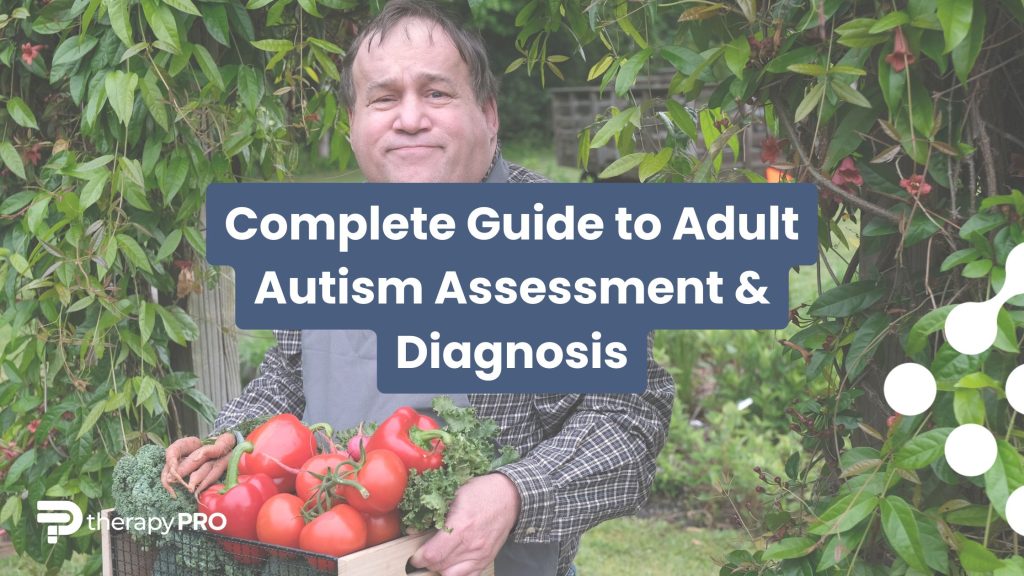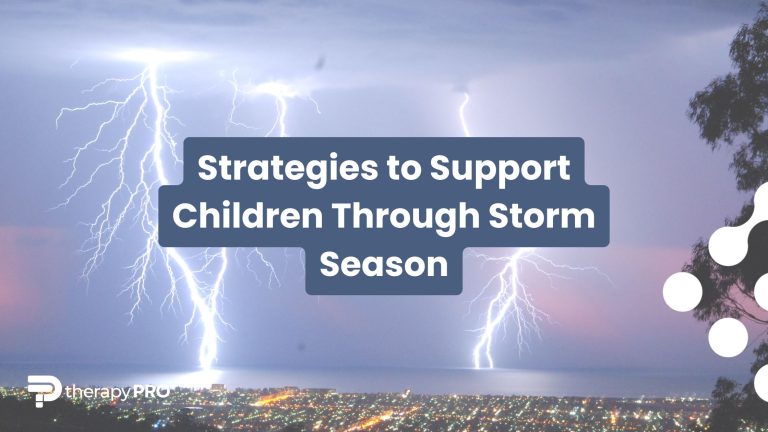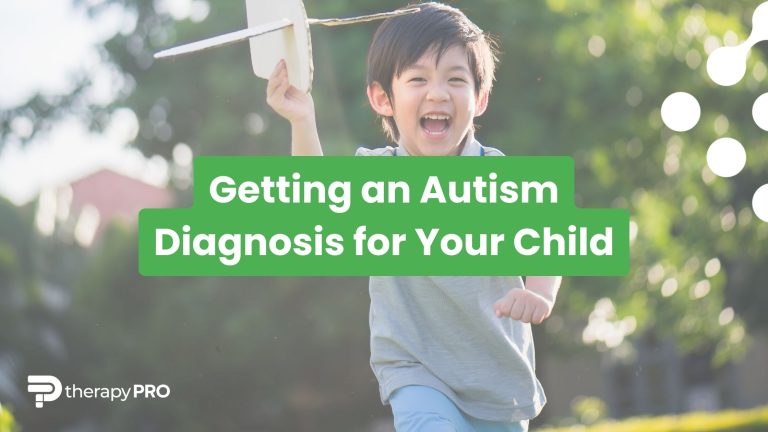Adult Autism Testing: A Complete Guide to Getting Diagnosed Later in Life
If you’re an adult questioning whether you might be autistic, you’re not alone. Many people discover they’re autistic later in life, often after years of feeling different, struggling to fit in, or exhausting themselves trying to mask their true selves.
Seeking an adult autism test can be a validating and empowering step towards understanding yourself better.
Why adults seek autism assessment later in life
There are many reasons why autism might not have been identified in childhood. You may have developed sophisticated masking strategies, been labelled as ‘shy’ or ‘quirky’, or simply grown up in a time when autism, particularly in girls and women, was poorly understood.
Common experiences that lead adults to seek assessment include:
- You have struggled with feeling socially isolated or different
- Family members have been diagnosed with autism and some characteristics sound familiar to you
- You have been diagnosed with other conditions but the diagnosis doesn’t fully explain your experiences
- You want to better understand yourself and your unique strengths and challenges
- You need documentation for workplace accommodations or support services
- You have been ‘masking’ or camouflaging autistic traits throughout your life and feel exhausted from trying to fit in or these have become overwhelming and are impacting your ability to live, work, and play.
- You’ve recently learnt more about autism and discovered that common experiences resonate with you
A late autism diagnosis doesn’t mean your experiences weren’t real or significant. It means you’re now able to understand yourself through a more accurate lens.
Understanding adult autism testing
An adult autism test, more accurately called an autism assessment, is a comprehensive evaluation conducted by qualified professionals. A gold standard formal assessment provides a thorough analysis of your developmental history, current presentation, and how autism may be impacting your life.
What is masking?
Masking refers to the conscious or unconscious strategies autistic people use to hide or suppress autistic traits to fit into neurotypical social expectations. This might include:
- Forcing eye contact when it feels uncomfortable
- Scripting conversations or rehearsing social interactions
- Suppressing stimming behaviours in public
- Mimicking other people’s mannerisms and social responses
- Pushing through sensory overload without showing discomfort
While masking can help autistic people navigate a neurotypical world, it can come at a significant cost. Many adults describe masking as exhausting, leading to burnout, anxiety, depression, and a loss of sense of self.
A neurodiversity-affirming assessment acknowledges masking and recognises that your ability to mask doesn’t mean you don’t experience challenges.
The adult autism assessment process
Our autism assessment approach
Our autism assessments are conducted by experienced psychologists with specialist training in autism assessment.
Depending on individual needs, your assessment may involve collaboration with other allied health professionals including speech and language pathologists, and occupational therapists.
We use internationally recognised, standardised assessment tools including:
- Autism Diagnostic Observation Schedule, Second Edition (ADOS-2) – the gold standard observational assessment
- Monteiro Interview Guidelines for Diagnosing the Autism Spectrum (MIGDAS) – for adults
- Autism Diagnostic Interview-Revised (ADI-R)
- Additional cognitive and developmental assessments as needed
- Assessments of functional capacity (required for NDIS applications)
All our assessments align with DSM-5TR diagnostic criteria and the National Guidelines for the assessment and diagnosis of autism in Australia.
Step 1: Initial consultation
Duration: 45-60min
Who’s involved: psychologist, parent/carer (for children), individual being assessed (where appropriate)
- Understand your concerns and goals
- Detailed developmental history gathering
- Discussion of current functioning across home, school or work environments
- Review of any previous reports or assessments
- Completion of screening questionnaires and rating scales
- Explanation of the assessment process and what to expect
- For children: gathering information from parents, carers and teachers
- For adults: exploring lifetime experiences and developmental patterns
Step 2: Assessment sessions
Duration: total 4-7 hours, across 2-3 appointments
Who attends: psychologist (and other therapists as needed eg., SLP or OT), individual being assessed, parent/carer
- Standardised assessment tools
- Cognitive and developmental testing (where appropriate)
- Observational activities tailored to age and language level
- Evaluation of social communication, interaction patterns and behaviours
- Assessment of sensory processing and adaptive functioning
Step 3: Analysis & report
Duration: 3-4 weeks after completion of testing.
What we do: Comprehensive analysis
Your detailed written report includes:
- Background information and reason for referral
- Assessment methods and tools used
- Detailed assessment findings and observations
- Diagnostic conclusion using DSM-5TR criteria (if appropriate)
- Individual strengths and areas of support need
- Tailored recommendations for interventions, accommodations and supports
- Information suitable for NDIS applications, school support plans or workplace adjustments
Step 4: Feedback session
Duration: 60min
Who attends: psychologist, parent/carer (for children), individual being assessed (where appropriate)
- In-depth discussion of assessment results and findings
- Explanation of diagnostic conclusions and what they mean
- Review of recommendations and next steps
- Opportunity to ask questions and clarify any concerns
- Discussion of available supports and services
- Guidance on accessing funding or accommodations
What happens after an adult autism diagnosis
For many adults, receiving an autism diagnosis is profoundly validating. It can help you understand why certain things have always felt harder for you, why you’ve felt different, and that there’s nothing wrong with you, you’re simply wired differently.
This understanding can be transformative, allowing you to be kinder to yourself and make life adjustments that honour your needs rather than constantly trying to fit neurotypical expectations.
Accessing support
Psychology services: Working with a neurodiversity-affirming psychologist can help you process your diagnosis, develop strategies that work with your neurology rather than against it, address autistic burnout, and work through co-occurring mental health challenges like anxiety or depression.
Allied health services: Occupational therapy can help with sensory regulation, executive functioning, and daily living strategies. Speech pathology can support communication preferences and social interaction in ways that feel authentic to you.
Therapy Pro offers NDIS funded and fee-for-service psychology and allied health supports that take a neurodiversity-affirming approach, recognising your strengths and supporting you to thrive as your authentic self.
Workplace and life adjustments: Your diagnosis report can be used to request reasonable workplace or university adjustments, and access to disability support services.
Why choose Therapy Pro for adult autism testing
Neurodiversity-affirming approach
Our psychologists understand that autism is a different way of being, not something that needs to be fixed or cured. We honour your lived experience and recognise the strengths that come with being autistic.
Understanding of masking and late diagnosis
We recognise that many autistic adults have spent years masking and that this doesn’t make your autism less valid. Our assessments account for how autism presents in adults who have developed compensatory strategies.
Immediate availability
Therapy Pro’s assessment clinics in Brisbane and Melbourne offer immediate availability for adult autism testing. You don’t have to wait months or years to get answers.
Comprehensive, compassionate care
Our qualified psychologists create a safe, non-judgmental space where you can be yourself. We take time to understand your unique story and provide thorough, thoughtful assessments.
Autism assessment costs, fees, and funding
Adult autism assessments in our Brisbane and Melbourne assessment clinics are provided on a fee-for-service basis.
Therapy Pro autism assessments fees range from $2000 to $2700 depending on the requested assessments. Our autism assessments are fee for service meaning clients pay out of pocket for the assessment and we do not use other funding sources such as the NDIS.
Some private health insurance policies may provide partial rebates for psychological assessments. It’s worth checking with your fund about coverage.
Next steps
If you are considering an autism assessment for yourself or your child, our experienced team is here to help. We understand that seeking an assessment can feel like a significant step, and we are committed to making the process as comfortable and supportive as possible.
Or complete our online enquiry form and a member of our team will be in touch to discuss your needs and answer any questions
About Therapy Pro’s team
This article was developed by Therapy Pro’s team of registered Education and Development, and Clinical Psychologists. With experience providing comprehensive assessments across all ages, our team delivers evidence-based, neurodiversity-affirming evaluations tailored to your individual needs. We are committed to delivering high-quality, client-centred care through our Brisbane and Melbourne assessment clinics, with telehealth options available for initial consultations.
Therapy Pro’s autism assessments are provided on a fee-for-service basis, with some private health insurance policies covering psychological assessments. Our comprehensive reports can be used to support applications for university and workplace accommodations NDIS funding and other government services. All assessments are conducted by qualified psychologists working under nationally recognised ethical guidelines, ensuring you receive professional, reliable results you can trust.
++++
Important notice: This information is general in nature and is not intended as personal advice. Individual responses to therapy vary. We recommend consulting with a qualified professional to discuss your specific circumstances and determine the most appropriate approach for your needs.




